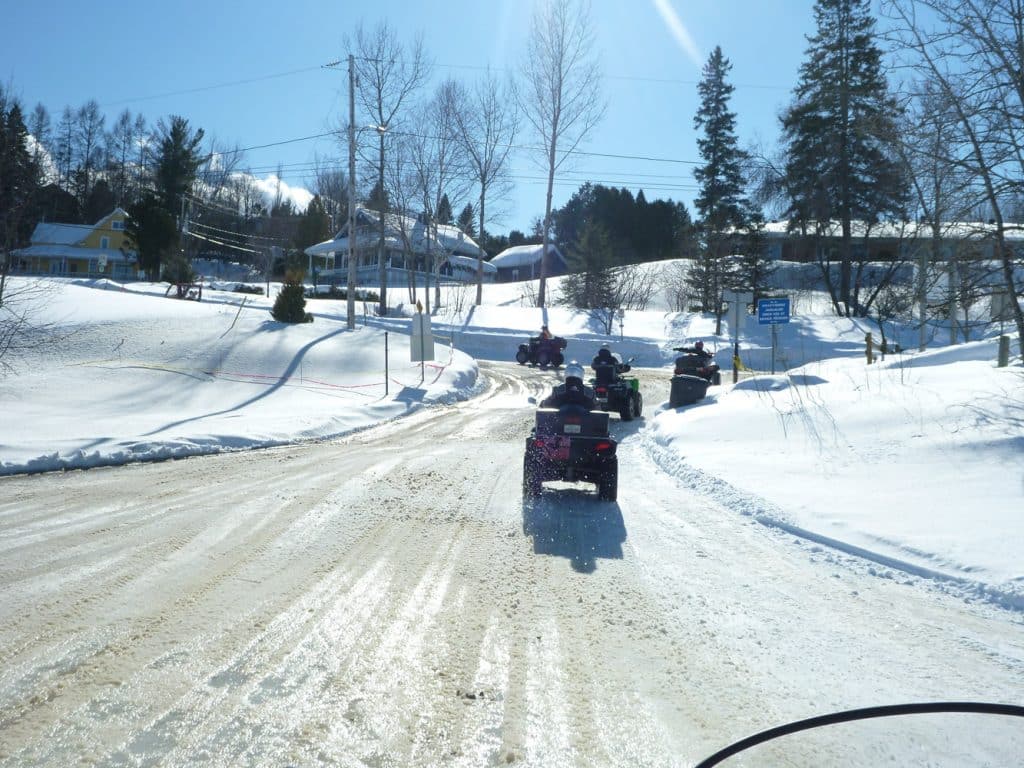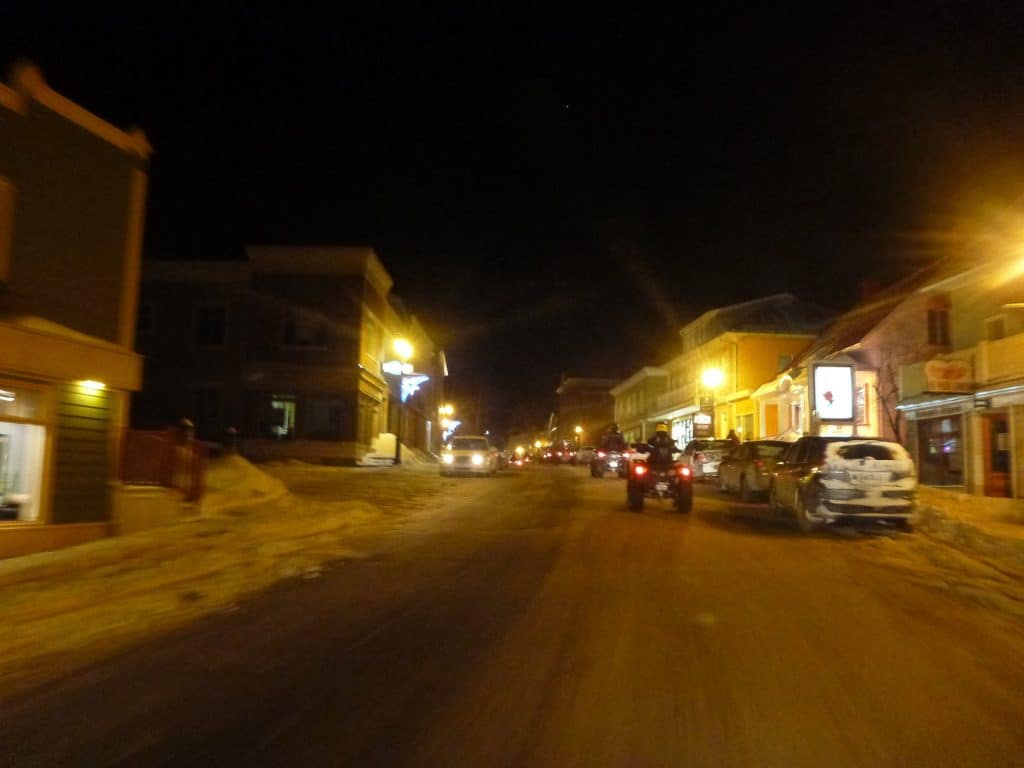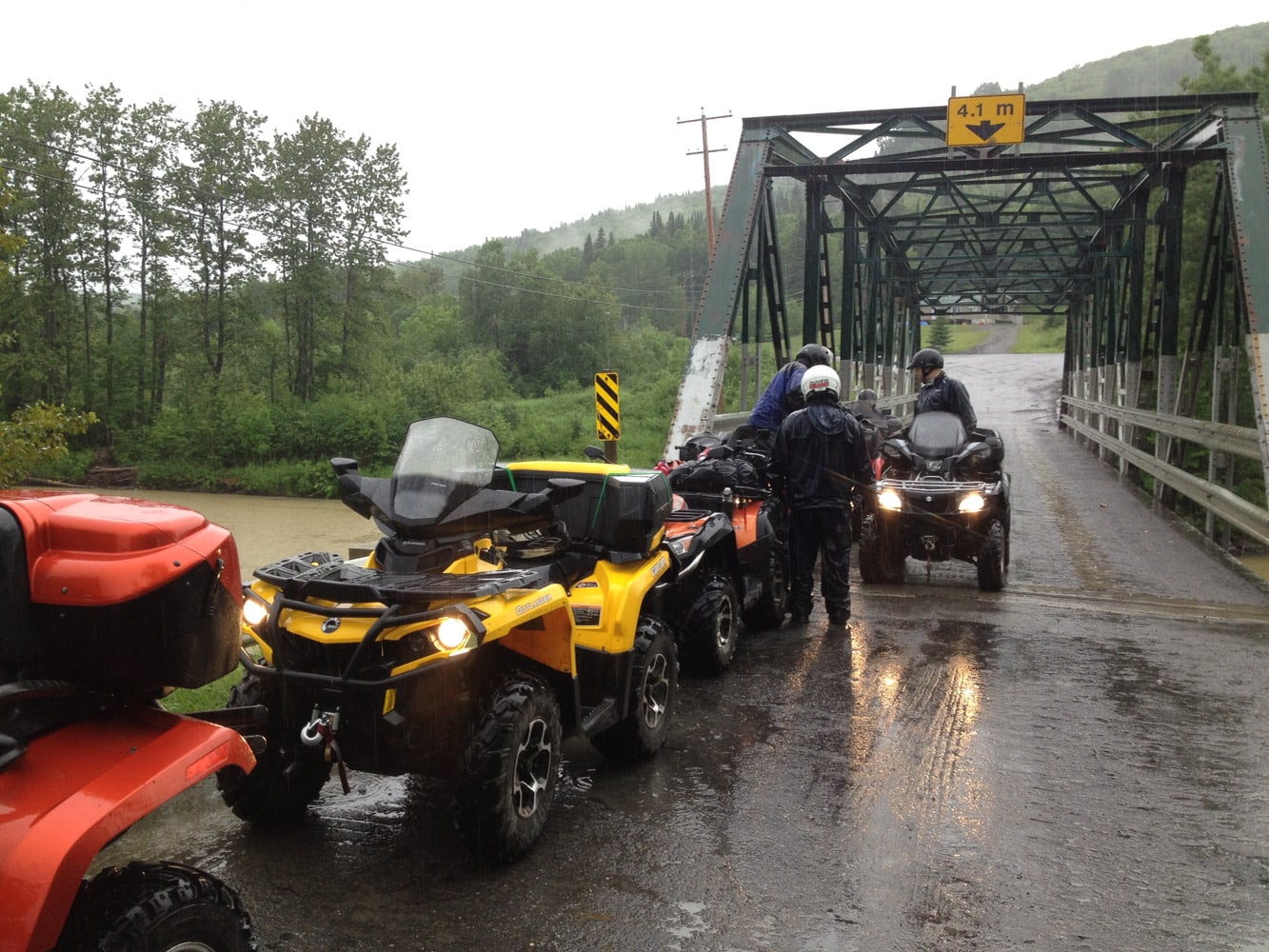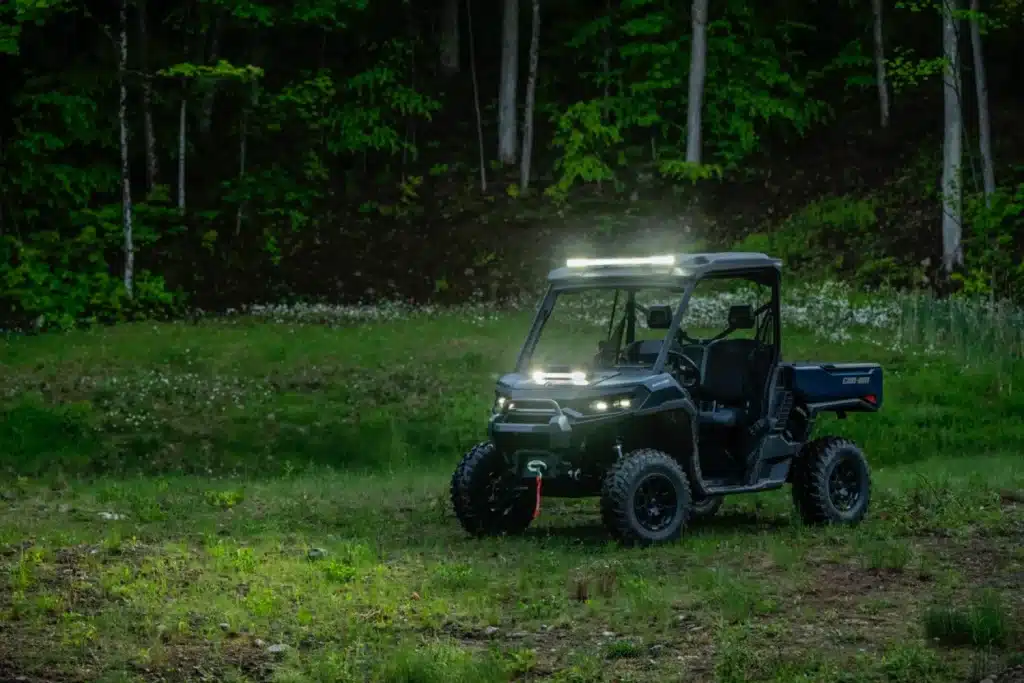There are many beliefs about the rights and permissions of riding on public roads with off-road vehicles (ORVs), especially quads. For example, many people mistakenly believe that it is permissible to use the public road to get from their home to the trail. Right off the bat, OHVs are not allowed on public roads. Period. However, the Off-Road Vehicle Act provides for a few exceptions that allow ORVs to travel on public roads under certain conditions.

For example, under certain conditions, as set out in Section 73 of the Act, it is permitted to
- To drive on the roadway, which includes the shoulder, for a maximum distance of one kilometer if the driver is a worker and the use of the vehicle is necessary;
- To cross the roadway where indicated by a road sign. To cross a public roadway, the driver must hold a valid driver’s license;
- Travel on the roadway, for a maximum distance of one kilometer and if authorized by road signs, to reach certain places such as an OHV users’ club trail or a gas station;
- To travel on the trail with the authorization of the person in charge of the maintenance of the trail and under the conditions that he/she determines, when road traffic is interrupted due to exceptional events or weather conditions.

Remember, it is mandatory to respect the speed limits indicated by the signs. And when you are allowed to drive on public roads, stay visible to other road users by keeping your off-road vehicle’s white headlight(s) on and the red rear marker (tail) light on.
Permission to operate under this Act does not relieve off-road vehicle users of the obligation to comply with conditions and restrictions imposed by the appropriate authorities and off-road vehicle user clubs, including the payment of fees.
Finally, the conditions and restrictions of the Off-Road Vehicle Act or a municipal by-law do not apply to the operation of vehicles operating in emergency situations. For example, peace officers’ vehicles, ambulances, fire fighting vehicles, vehicles of persons engaged in work or vehicles of persons having security duties are not subject to these conditions and restrictions if they are going to a place where their intervention is necessary.






